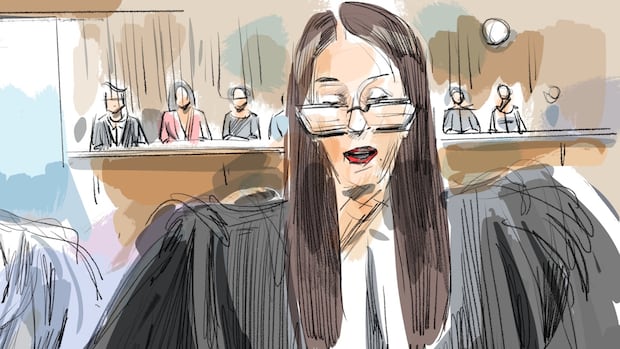Greenspan argues reasonable doubt “doesn’t require finding that the complainant had, in fact, consented to each and every sexual act. Such an approach wrongly reverses the burden of proof.”
(In Canadian criminal cases, the burden of proof rests with the Crown, which means it is the Crown that must prove something happened beyond a reasonable doubt.)
E.M. changed her story to “falsely sexualize” Foote’s splits, Greenspan contends.
In 2018, she told London police Det. Stephen Newton that someone did the splits, but didn’t tell him the man was naked.
While testifying in this trial, E.M. told Greenspan under cross-examination that she didn’t feel comfortable talking about the naked man with the male detective and she assumed the nakedness was implied, Greenspan tells the judge.
“She didn’t say it in 2018 because the person was not naked. Her explanation is non-sensical,” Greenspan says.
Her client is a “tall guy who is flexible” and would do the splits at a moment’s notice, including on the dance floor that night, at Jack’s bar. It was something he could do with his clothes on, Greenspan says.
“There is evidence that people in that room said, ‘Footer do the splits’ … There’s no evidence people said, ‘Oh, and take your clothes off. Take your clothes off this time when you do that thing you do every time you do the splits with your clothes on.’”
